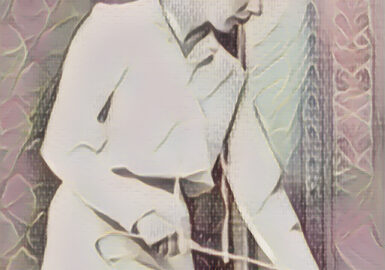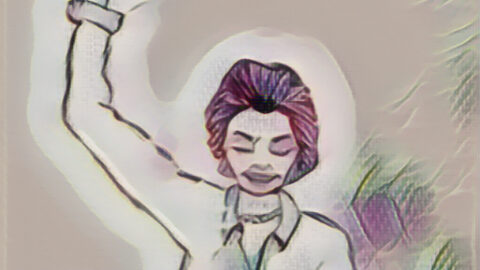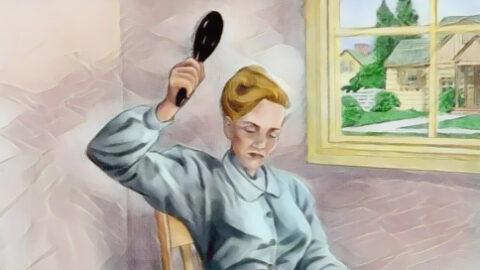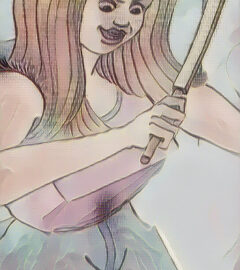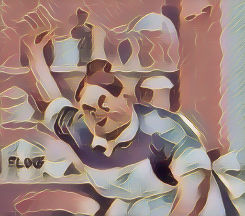(gap: 2s) My first proper girlfriend, Anna, was unforgettable. She had a cascade of chestnut hair that shimmered in the sunlight, and her sharp, intelligent eyes always seemed to be searching for the next bit of mischief. There was a quiet confidence in the way she moved, but her smile—wide, a little crooked, and always on the verge of laughter—hinted at a rebellious streak that made my heart race. I remember the first time I saw her, leaning against the school gates, arms folded, a glint in her eye as she watched the world go by. She was the kind of girl who could silence a room with a single look, yet she never seemed to take herself too seriously. Despite her maturity, Anna still got the occasional spanking from her mother—a fact that always surprised people who only saw her poised, self-assured exterior. I remember the first time she told me, her cheeks flushed, her voice low, as if sharing a secret that was both embarrassing and oddly thrilling.
But it was Anna’s mother, Mrs. Carter, who truly left an indelible mark on my memory. Even as an outsider, I found myself both intimidated and fascinated by her. Mrs. Carter was a short woman, but she radiated authority. Her presence filled every room she entered, and her voice—deep, resonant, and capable of booming across the house—commanded instant attention. She had a way of standing, back straight, chin lifted, eyes unwavering, that made you feel as if you were under a microscope. But what truly set her apart—what made her unforgettable—was the slipper she wielded.
(short pause) The infamous slipper was no ordinary house shoe. It was large, almost comically so for her petite frame, with a thick, heavy rubber sole that looked like it could withstand a lifetime of use. The faded blue strap was cracked and worn, the edges fraying from years of discipline, and the toe was scuffed and slightly upturned, as if it had been slammed down countless times. The sole itself bore the faint imprint of the manufacturer’s logo, now nearly rubbed away, and there was a small, mysterious burn mark near the heel—perhaps from an old run-in with the fireplace. When Mrs. Carter held it, the slipper seemed to grow in size, casting a shadow that felt far larger than the object itself. It was the kind of slipper you could never mistake for anyone else’s, and its mere appearance was enough to make even the bravest child—or visitor—sit up straight. The sound it made when tapped against her palm was sharp and ominous, a warning in itself. In the Carter household, the slipper was more than a tool; it was a symbol of authority, and its legend was whispered about with a mix of dread and awe.
I remember the first time I saw her wield it, the way she tapped it against her palm as she spoke, her gaze flicking between Anna and me. My palms would sweat, my heart would thump in my chest, and I’d find myself sitting up straighter, minding my manners, terrified of drawing her ire. There was no question who ruled the Carter household. Mrs. Carter’s word was law, and her slipper was the instrument of its enforcement. Even the most innocent of visitors—myself included—couldn’t help but tread carefully under her watchful eye, lest we too fall afoul of her formidable discipline. (short pause)
One night stands out in my memory with particular clarity. Anna and I had been out at a gig—a smoky, crowded little venue where the music was loud and the air was thick with excitement. We danced until our feet ached, laughing and shouting over the noise, and by the time we left, the city was quiet and the streets were slick with rain. My friend, always reliable, picked us up in his battered old car, the seats smelling faintly of petrol and mint gum. We dropped Anna off first. As we pulled up to her house, the porch light was on, casting a golden glow over the front steps. Mrs. Carter was waiting by the door, arms folded, slipper in hand. She was a petite woman, her iron-gray hair pulled into a tight bun, her posture ramrod straight. Her eyes, usually warm, were now narrowed in disapproval, and the air around her seemed to crackle with tension. I could feel my stomach twist with nerves as Anna squeezed my hand, her fingers cold but steady.
Anna, ever the brave soul, turned to me and whispered, “Wish me luck.” There was a flicker of nervous anticipation in her eyes, but she managed a crooked smile. She kissed me goodnight, quick and soft, and I could feel her breath trembling against my cheek. “Don’t worry,” she whispered, “I know what’s coming.” I watched as she squared her shoulders and walked up the steps, her head held high, even as Mrs. Carter’s gaze bore into her. The door closed behind them with a soft click, and I sat in the car for a moment, heart pounding, imagining what was happening inside.
The next day, Anna and I met at our usual spot in the park, beneath the old oak tree. She was wearing a loose sweater, her hair pulled back, and there was a faint flush on her cheeks. She grinned at me, a little sheepish, and said, “Well, you probably guessed what happened.” She told me that although her father, Mr. Carter—a gentle, bespectacled man with a soft voice and a tendency to avoid conflict—had given her permission to be home later than usual, he hadn’t told her mother about this arrangement. Mrs. Carter, fiercely protective and a stickler for rules, had become frantic with worry, expecting Anna back by 11. “She was pacing the hallway when I came in,” Anna said, mimicking her mother’s stern voice: “‘Young lady, do you know what time it is?’” We both laughed, but I could see the memory still made her shiver.
As Anna had predicted, she was taken indoors and put over her mother’s knee. She described it in vivid detail—the way Mrs. Carter’s grip was firm but not cruel, the way the rubber-soled slipper felt cold against her skin before the first smack landed. “It stings like nothing else,” Anna admitted, her eyes wide. “She doesn’t hold back, either. It’s like she’s trying to teach you a lesson you’ll never forget.” The sound of the slipper connecting with her skin echoed through the house, she said, and she couldn’t help but yelp and wriggle as the stinging blows landed one after another. Mrs. Carter’s short temper and booming voice made the whole ordeal even more intimidating. “You will not worry me like that again, Anna!” she’d shouted, each word punctuated by another sharp smack. Anna’s composure crumbled, and she found herself promising, through tears and laughter, never to break curfew again. “It’s almost funny, looking back,” she said, “but in the moment, it’s terrifying.”
But the story didn’t end there. Anna revealed, with a mischievous grin, that as the misunderstanding had been deemed largely her father’s fault, Mrs. Carter had proceeded to put Mr. Carter across her knee after their daughter and gave him the same treatment. “You should have seen his face,” Anna giggled. “He looked like a schoolboy caught with his hand in the biscuit tin.” The sight of the mild-mannered, slightly stooped Mr. Carter yelping and wriggling under his wife’s firm hand was, Anna admitted, both hilarious and oddly comforting—a sign of the unique dynamic in their household. “Mum doesn’t play favorites,” she said. “If you break the rules, you get the slipper, no matter who you are.”
Apparently, this was not a one-off event either. The rubber-soled slipper was a regular feature in their household discipline, wielded by Mrs. Carter with unwavering resolve. Her short fuse and thunderous voice ensured everyone took her seriously. Anna told me stories of her younger brother, too, and even the family dog, who would slink away at the mere sight of the slipper. The house itself seemed to hold its breath when Mrs. Carter was in a mood, the air thick with anticipation and the faint scent of lavender polish. Yet, beneath the sternness, there was a deep current of love—a sense that Mrs. Carter’s discipline was rooted in care, not cruelty.
As our relationship developed, I began to notice how these motherly spankings, especially with the slipper, seemed to arouse Anna as much as they fascinated me. There was a mischievous glint in her eye whenever she recounted a particularly memorable incident, and sometimes, in the quiet moments after, she would confess how the anticipation, the ritual, and even the sting itself made her feel alive. “It’s strange,” she once whispered, her head resting on my shoulder, “but I think I need it, sometimes. It’s like… it reminds me I’m loved, even when I’m in trouble.” Her mischievous side seemed to thrive under her mother’s strict but loving hand, and I found myself drawn deeper into the strange, secret world of the Carter household.
Years later, I would discover that the woman I eventually married, Emily, also had sensations from spankings from quite an early age. Emily was a petite, freckled woman with a quick wit and a contagious laugh. As a girl, she was spanked by her grandmother—a stern, silver-haired matriarch—in the presence of her younger brother, which was a huge embarrassment for her and only added to her complex feelings about discipline. Emily would tell me, her voice soft and a little wistful, about the way her grandmother’s house always smelled of baking bread and rosewater, and how the sound of her grandmother’s footsteps on the wooden floor would make her heart race. “It was mortifying,” she’d say, “but somehow, it made me feel safe, too. Like there were boundaries, and someone cared enough to enforce them.” (long pause)
Looking back, I realize how much those childhood memories shaped us all—the laughter, the tears, the sting of the slipper, and the warmth of a mother’s embrace after. The Carter household, with its patterned wallpaper and ever-present sense of order, was a world unto itself: strict, loving, and unforgettable. And in the end, it was those moments of discipline, as much as the moments of joy, that bound us together and made us who we are.


























